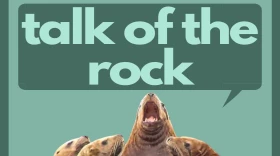During a borough assembly work session earlier this month on Oct. 9, state Sen. Gary Stevens told assembly members that dozens of community and school infrastructure projects across Alaska are all waiting for state funding.
“And we know how desperate things are all over the state in terms of the amount of projects that need funding," Stevens said. "The list is so enormous that we can’t solve it all at once but we can deal with a few of the most egregious situations and we will do that.”
Kodiak needs millions of dollars to overhaul St. Herman harbor, replace the roof at Main Elementary School and likely repair the local hospital building too, just to name a few.
The Alaska Legislature passed a capital budget in May that was only a fraction of what it was two years ago and it included no money for capital projects in any individual legislators’ districts. Stevens, a Republican who has been the state Senate President for eight years, made no specific commitments to assembly members for state funding for any of Kodiak’s capital projects in the upcoming legislative session.
Despite the state’s financial woes, there haven’t been any new taxes introduced to put more money into dwindling state coffers this year. Alaska still has no state income tax, no state sales tax and no state property tax. Stevens said many Alaskans he talks to are opposed to new taxes.
“As someone who’s leaving the Legislature, I know we won’t do anything this year on sales tax or income tax, but I think we’ve got to address an income tax; not to keep a permanent fund dividend, but in order to pay for the needs of our government,” he explained.
Stevens is entering his 26th year in the state Legislature, which will also be his last. He told KMXT earlier this year that he will retire at the end of the upcoming legislative session. Gov. Mike Dunleavy is also in the last year of his term. The governor is required to release his final proposed budget in mid-December, according to the state OMB office.
Republican Louise Stutes, Kodiak’s representative in the state House, told the borough assembly that so far, Dunleavy has been against a state income tax.
“So you know we can try it again," Rep. Stutes said. "But right now, you have to keep in mind that this governor has said unequivocally, with no exception, he will veto any new tax.”
Dunleavy has said he’d only be open to new taxes as part of a larger fiscal plan that would also restrain state spending.
Meanwhile, lawmakers warned this spring of even leaner times ahead as oil prices and federal spending falter. In response, legislators have already begun exploring potential revenue generating options like reducing the oil production tax credit. Stutes said she is in favor of getting more money out of the oil companies that do business in Alaska by changing the oil tax credits.
“Well we could address the oil without increasing the tax, by decreasing the credits that the state gives them. And let’s make it a little more transparent. You want a state oil tax credit, apply for it. Let the Legislature appropriate those funds for the credit," she said. "But I’m telling you what, that would increase our revenue from the state.”
Top members of the Democrat-heavy coalition controlling the state Senate proposed similar oil tax credit changes in one of two revenue bills it sponsored during the last legislative session. The state revenue department says those changes could raise hundreds of millions of dollars per year.
The oil and gas production tax bill, Senate Bill 112, was referred to the Senate Resources Committee and will be carried over into the upcoming legislative session. It’s unclear whether it has enough support to pass the full Legislature. The other bill, SB 113, was passed by both chambers of the Legislature and then vetoed by Gov. Mike Dunleavy last month.
The next legislative session is set to begin on Jan. 20 at the state capitol in Juneau.






